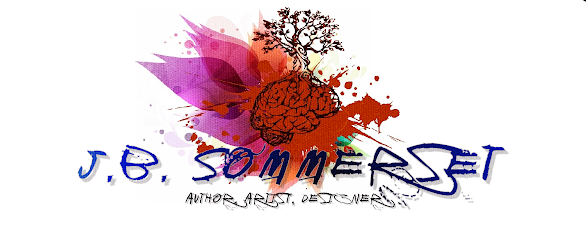The seven deadly plots...
This post is for the new writers out there, I hope you find this information useful.
In a recent post, I referred to the seven basic plots. There is some controversy around the concept, and I will admit, I used to get hung up on it. Eventually, I discarded the notion that it mattered. I studied them and decided they were only meaningful in context, cataloging, and when I write my dust jackets (especially when writing my dust jackets). They are tools to sum things up in the simplest of ways.
Years ago, it was hypothesized that all stories (at least in fiction) could be divided up into seven basic plots or a combination of seven basic plots. Christopher Booker, the man who literally wrote the book on the topic, believed that there were no plot types outside of the primary seven. Christopher Booker is also credited with "The Rule of Three", but I will get to that in another post.
So, you may ask, what are the seven basic plots? I will list them, and I will define them below. Keep in mind, these plot types can be combined and recombined to make more complex and intriguing storylines. Without any more fuss, here are the seven basic plot types.
1) Overcoming the monster: Overcoming the monster is one of the oldest and most straightforward plot types. There is a monster destroying everything and killing everyone- we must overcome this beast! Yes, it really is that simple. It's the "Beowulf" plot type.
2) Rags to riches: This plot is another ancient and well-used plot, and it goes something like this: the main character is poor (like really poor), Suddenly, there is a windfall and they become rich. However, they are still stupid and lose it all. Then they rebuild it or find value in something more substantial. Along the journey, they grow as a person. The most straightforward example of this (at least that I can think of right now) is "The Prince and the Pauper."
3) The quest: This one is very simple: "There is this thing, we have been charged to find it, and we need to overcome adversary, challenges, trials, and even death to get it—the end." The best and oldest example of this one is Homer's "The Iliad."
4) Voyage and return: The voyage and return are about traveling to new places, overcoming things, learning things, and returning with the knowledge and growth gleaned from the journey. "Gulliver's Travels" is an excellent example of this plot type.
5) Comedy: This plot type isn't so much about humor but more about comedy. It is light-hearted but complex. The conflict in the work becomes more and more confusing and strange. As the work moves to the end, a single event makes everything clear. This one is harder to define because it is more about clarifying the work and the absurdity of life. "A Midsummer Nights Dream" is an excellent example of this plot type.
6) Tragedy: Nothing is redeeming about this kind of plot. It is basically about learning a lesson through the fall of a good character or the slow unraveling of a person's sanity. The events of the work usually henge on a major character flaw or trait that prevents the main character from being happy or successful. And therein lies the lesson. These are often the hardest to read out of the seven plots- they are inherently unfun. "Citizen Cain" falls into this plot type.
7) Rebirth: I love this plot type. I think out of all the plot types, this one is my favorite. It is also the one that combines the easiest with all the other plots. It doesn't require a bad guy, and it doesn't require a catastrophic event. It is simple: The main character looks inward and overcomes his or her character flaws to be reborn into a better person. That's it, very simple. My favorite example of this plot type is not a book, but rather a movie- "Groundhog day".
Whether you believe it or not, most stories in fiction fall right into at least one of these plots. I have tried to find one outside of them, and very rarely do I come close. As an independent free thinker, and also a misanthrope, I hated the idea that someone could box my writing in. I still do, however, I refuse to let it matter.
I hope this has been helpful to any new writers out there.
Cheers!




Comments
Post a Comment